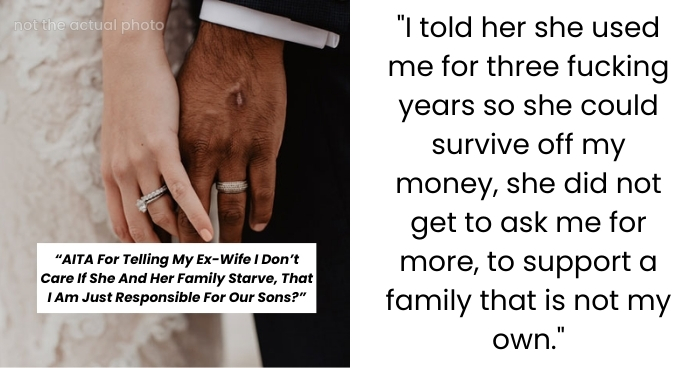“AITA For Telling My Ex-Wife I Don’t Care If She And Her Family Starve, That I Am Just Responsible For Our Sons?”
The story revolves around a strained post-divorce relationship between the Original Poster (OP) and his ex-wife. OP, a father to two teenage sons, shares a complex and contentious history with his ex-wife. Their marriage ended after OP discovered she had stayed in the relationship primarily for financial support while she pursued higher education and a lucrative career change. The divorce settlement awarded OP 50/50 custody and child support payments from the ex-wife due to her higher earnings. Over time, various misfortunes befell his ex-wife, including her current husband’s cancer diagnosis, a child’s medical condition, and financial difficulties due to job instability and COVID-19.
After a court ruling reduced her custody to every other weekend, OP’s ex-wife approached him for financial assistance, arguing that her family is part of their sons’ lives and should matter to him. OP refused, citing her past manipulation and focusing solely on his obligation to their sons. In response, his ex-wife lashed out, calling him selfish, and her husband sent accusatory messages, suggesting OP’s behavior would estrange him from his children.
Read for more info Reddit
The puzzle of whether to support your ex-spouse during difficult times would be a difficult question to answer for most
A Redditor wanted input on a dilemma he was facing: whether he should support his ex-wife financially even if she was only married to him for the money




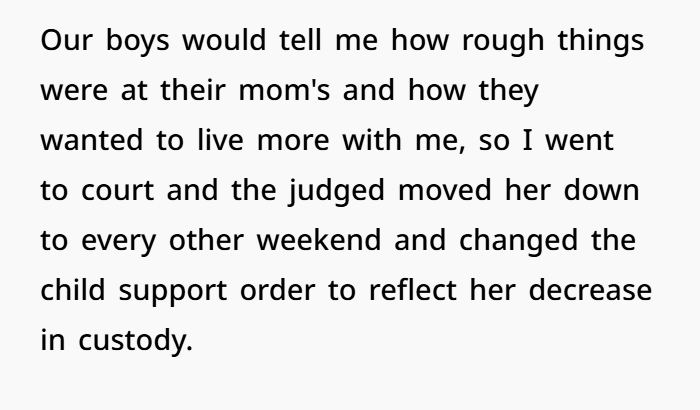

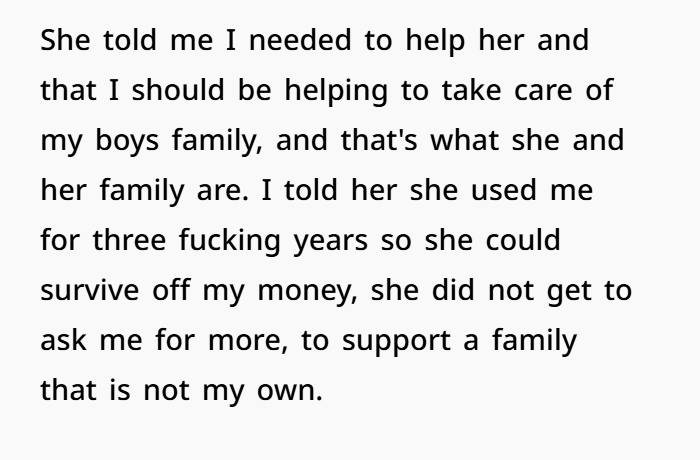

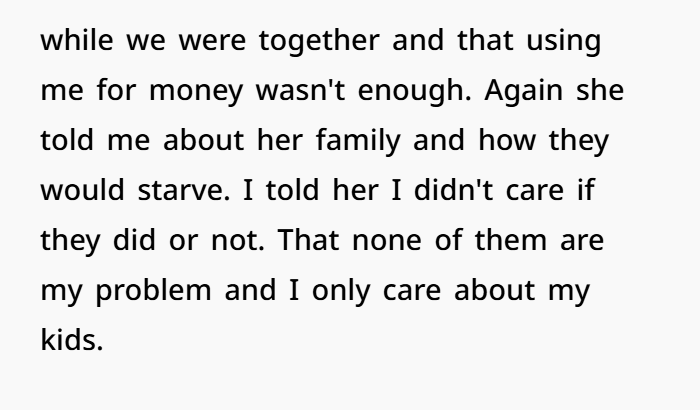
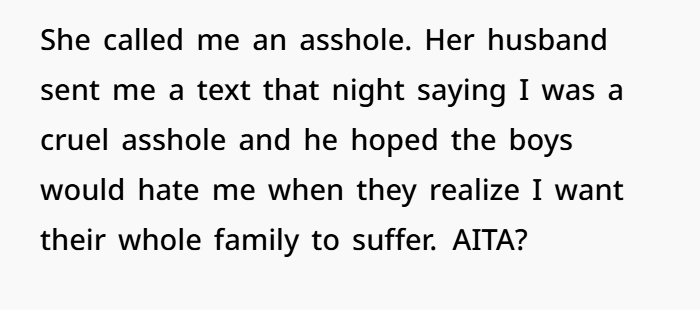
The poster believes that he is in the right for denying help but mentions that his sons may feel different
Post-divorce financial obligations are often delineated by legal agreements to provide clarity and fairness. In this case, the court has already decided on child support payments based on custody arrangements and income levels. OP’s ex-wife’s financial difficulties, while unfortunate, do not legally compel him to support her or her new family, as their connection ended with the divorce, apart from their shared responsibility for their children.
Ethically, opinions vary on whether ex-spouses should assist each other beyond legal obligations, particularly in cases involving shared children. Advocates of mutual aid may argue that the ex-wife’s financial stability indirectly impacts the well-being of OP’s sons, who might feel stress or guilt about their mother’s hardships. However, OP’s perspective—that his responsibility ends with their sons—is also valid, especially given the history of manipulation and mistrust.
Legally, courts prioritize the children’s best interests. If OP’s refusal to assist creates significant disparities between households that negatively affect the sons, a case could be made for modifying child support payments. However, courts are unlikely to hold OP accountable for his ex-wife’s unrelated family struggles. A precedent in family law emphasizes the independence of post-divorce lives, where financial ties are severed beyond child-related obligations unless explicitly agreed otherwise.
The emotional toll on children caught between such conflicts is noteworthy. Research from the American Psychological Association suggests that children thrive when both parents minimize conflict and foster a sense of security, regardless of household circumstances. OP’s sons may feel torn or pressured by their mother’s framing of the situation, potentially leading to resentment toward one or both parents.
Commenters agreed with OP, saying that they would have taken the same course of action in his shoes

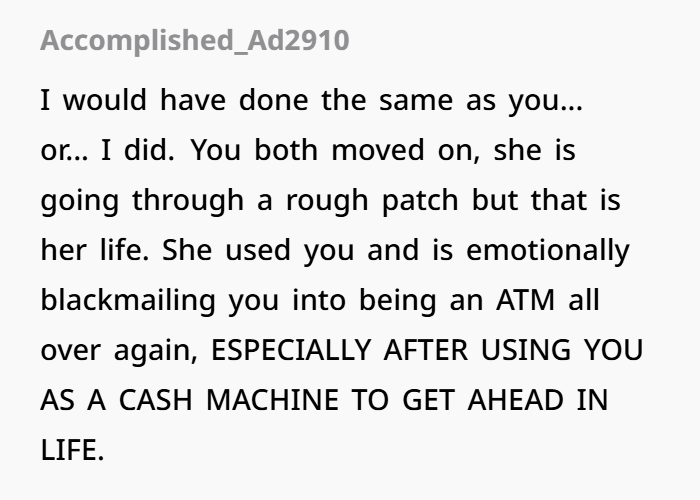
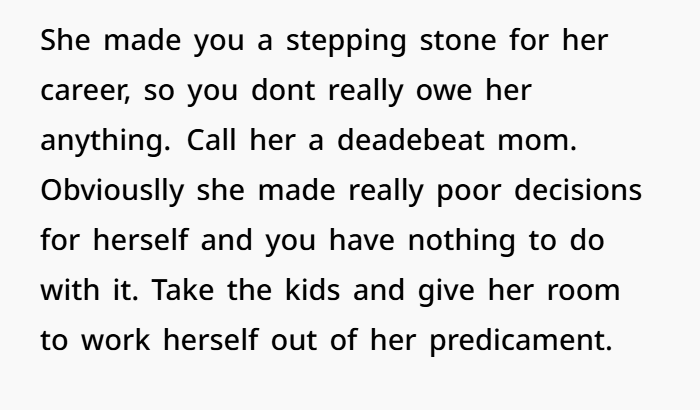

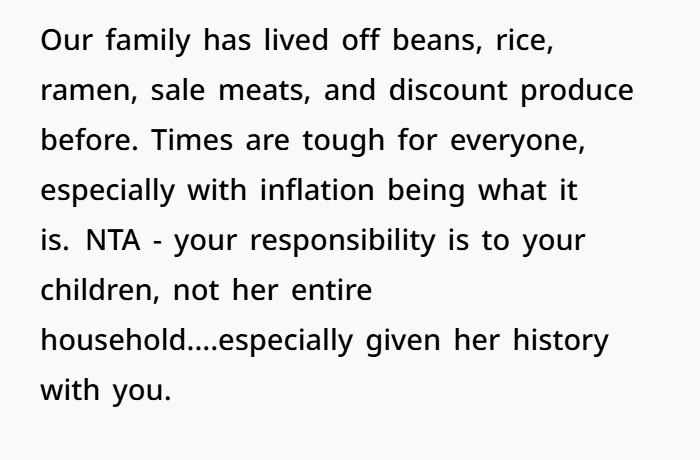

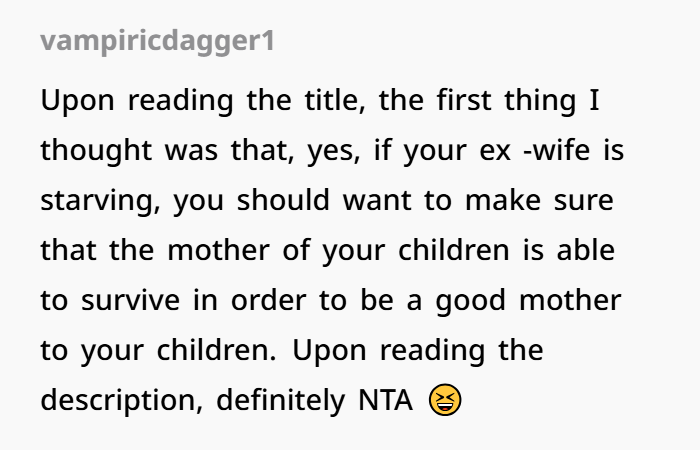
While OP is within his rights to deny assistance, his comments about not caring if his ex-wife’s family starves could come across as unnecessarily harsh, especially in front of his sons. Balancing firm boundaries with compassion might help maintain healthier dynamics, ensuring the focus remains on the well-being of their children. Whether or not OP is the “A-hole” depends on one’s stance on the interplay of ethics, past grievances, and practical responsibilities in post-divorce relationships.

